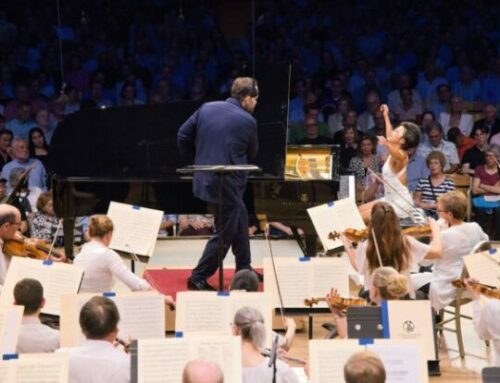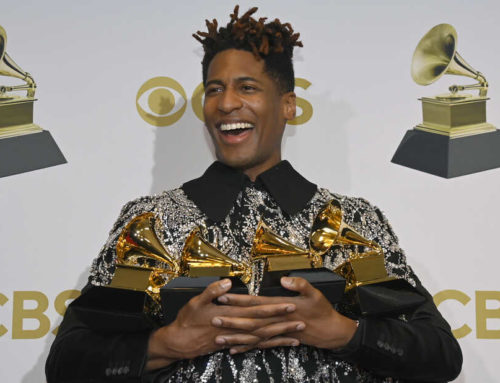The 66th Grammy Awards–“Music’s biggest night”– was much more than a 3 hour-plus extravaganza because of two performances that shook us and took us above and beyond. It wasn’t just about winning and losing. (See full winners list here) Yes. Taylor Swift made history as the first artist ever to win Best Album 4 times. It wasn’t even that women nominees dominated in the major categories, although that’s certainly an encouraging trend. What I can’t stop thinking about are two performances that stopped the show–and my heart, proof of the power of music to halt us in our well-worn tracks and cut to the quick of what unites us. CLICK HERE TO WATCH!
The first moment happened when a musician who had penned a song while she was still a student at Tufts, saw it become a breakthrough hit back in 1988 and go on to earn her a Best New Artist Grammy– suddenly emerged from the shadows onstage. There was Tracy Chapman now 35 years later, beaming, elegant, strumming her acoustic guitar and singing in that SAME soft but urgent voice, the unforgettable opening bars of “Fast Car.” The audience gasped and started applauding… The song is again a hit and a grammy-nominated single, this time covered by country star Luke Combs who, taking his cue from Chapman, joined her onstage, alternating verses of that gem of a ballad. So much was good and right about that moment.
Combs who wasn’t even born when that song was written, said, according to an interview in PRIDE “That song meant a lot to me …for my whole life. I always think about my dad when it comes on and us spending time together.” That Combs paid all due respect to the song’s originator on that stage, that two artists across a generation and god knows how many other barriers–a Black female pop/folk musician, and a white male country musician– could find common ground in a universal yearning for escape and a better life– was a thing of beauty in these discordant times. That they could share some loving harmony on that stage, resonated as a powerful testament to what binds us. Chapman and Combs stopped the show, while the audience, now on its feet, applauded what they did and how gracefully they did it.
Then it happened again, near the end of the show when the golden-voiced Brandi Carlile came out onstage –not only to sing, but to sing the praises of her friend and inspiration, a musician she was about to accompany and introduce as the “Matriarch of Imagination”: Joni Mitchell. This legendary singer/songwriter won her first Grammy 50 years ago but had never performed at the Grammys until now, making her Grammy debut at 80 years old and winning this year’s Grammy for Best Folk Album. She’s never sounded better.
Recuperating from a brain aneurysm 9 years ago which required her to learn how to speak and walk again, Joni sang from a throne-like chair, embodying the hard-won wisdom embedded in a profoundly beautiful rendition of BOTH SIDES NOW. Her voice has deepened with time and is an instrument of stunning dramatic power and a story teller’s magic. The entire audience, thousands of artists from every genre, Meryl Streep to Beyonce, listened as if under a spell. I’ve never seen anything like it. Silent and still, tears in our eyes, we hung on every phrase Joni turned about life’s mysteries, of love and loss, regret and illusion, about what can and cannot be pinned down. She sang the words of a classic penned long ago as if sifting through it fresh again, but now in the fullness of a long, full life. (Click here to watch this extraordinary performance!) This is what artists do. Thank you Tracy and Joni and all those who are inspired to follow in their footsteps. The world needs you.
And we will never forget those musical greats we have lost this year. Their names were included in the Grammy’s IN MEMORIAM segment, but their legacies go deep. Once again, my colleagues Bob Males and Stuart Brotman have shed more light on who they were-this time focusing on the legacies of six Jewish musical luminaries and the breadth of their contributions to “the soundtrack of our lives.” Enjoy!





